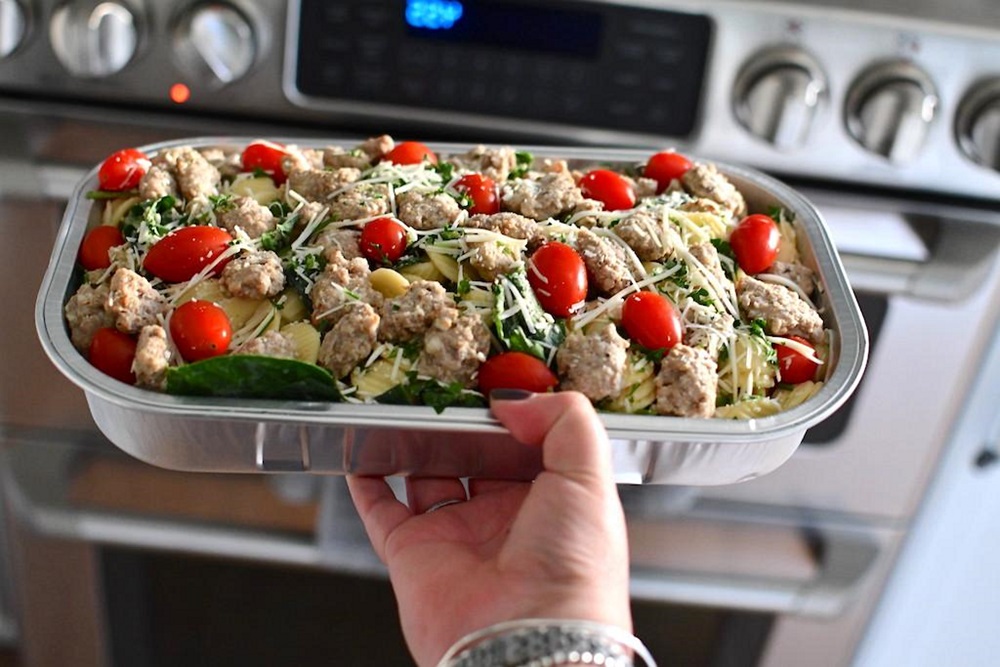Last Updated on: 18th December 2024, 12:30 pm
Pre-workout nutrition is crucial for maximizing performance. The right meal can enhance endurance, strength, and recovery. Focus on these macronutrients:
- Carbohydrates: Primary energy source for intense workouts.
- Proteins: Support muscle repair and growth.
- Fats: Provide sustained energy for longer sessions.
Balancing and timing these nutrients can boost energy levels and improve endurance, allowing for harder and longer training sessions.
Understanding the Timing of Pre-Workout Meals

Ideal Time to Eat Before Different Types of Workouts
For strength training, eat 2-3 hours before to allow digestion and nutrient utilization. For cardio, a lighter snack 30-60 minutes prior provides a quick energy boost.
The Role of Digestion and Absorption Rates
Carbohydrates and proteins digest at different rates. Carbs offer quick energy, while proteins provide sustained support. Tailor meal timing to workout intensity and duration.
Quick Tips for Timing Your Meals
- Strength training: Balanced meal 2-3 hours before.
- Cardio: Light, carb-rich snack 30-60 minutes prior.
- Adjust timing and composition based on workout feedback.
Fine-tuning meal timing ensures optimal fuel availability, enhancing performance and results.
The Power of Carbohydrates

Why Carbs Are Crucial for Energy
Carbohydrates fuel high-intensity workouts by breaking down into glucose for muscle contractions. Adequate carbs prevent energy dips and performance issues.
Simple vs. Complex Carbohydrates and Their Impact on Performance
- Simple carbohydrates: Quick energy from fruits and honey.
- Complex carbohydrates: Steady energy from whole grains and vegetables.
Best Carbohydrate Sources for Pre-Workout Meals
Combine complex carbs with moderate protein. Options include a banana with almond butter, oatmeal with berries, or a whole-grain sandwich with lean turkey. These meals provide sustained energy for peak performance.
Choose the right carbs and time your meal 2-3 hours before exercise for optimal energy and performance.
The Role of Proteins and Fats

How Protein Supports Muscle Repair and Growth
Protein provides amino acids for muscle repair and growth, enhancing recovery and performance. Consuming protein pre-workout supports these processes.
The Importance of Fats in Long-Duration Workouts
Fats offer sustained energy for endurance activities, stepping in when carbs are depleted. They are essential for maintaining performance in long workouts.
Balancing Macronutrients for Optimal Results
Balance carbs, proteins, and fats for steady energy, muscle support, and overall health. Tailor this balance to your workout needs for enhanced performance.
Recommended Protein and Fat Sources for Pre-Workout Meals
- Proteins: Lean sources like chicken, turkey, tofu, and legumes.
- Fats: Healthy sources such as avocados, nuts, seeds, and olive oil.
Choose the right protein and fat sources to fuel your body effectively for any workout.
Hydration and Pre-Workout Nutrition

The Importance of Water and Electrolytes for Performance
Proper hydration primes muscles and supports heart rate. Electrolytes balance fluids and support nerve function and muscle contractions, enhancing performance.
How to Hydrate Properly Before Exercising
Drink 17-20 ounces of water 2-3 hours before exercise, plus 8 ounces 20-30 minutes prior. For long sessions, consider electrolyte beverages.
Signs of Dehydration to Watch Out For
Watch for thirst, dry mouth, reduced sweat, and dark urine. Severe signs include dizziness and fatigue. Recognize early signs to rehydrate promptly.
Proper hydration and electrolyte balance are crucial for a successful workout. Adjust as needed for optimal performance.
Sample Pre-Workout Meal Ideas

Quick and Easy Pre-Workout Meal and Snack Ideas
- Banana with peanut butter – carbs and protein.
- Greek yogurt with honey and almonds – nutrient-rich.
- Rice cake with avocado – carbs and healthy fats.
These options are convenient and won’t weigh you down.
Tailoring Your Pre-Workout Meal to Your Workout Type and Time
- Weightlifting: Smoothie with whey protein, spinach, and fruit – muscle support.
- Running: Whole-grain toast with jam – fast-acting carbs.
Match your meal’s macronutrient profile to your workout demands for optimal performance.
Adjusting Meals for Morning vs. Evening Workouts
- Morning Workouts: Apple with almond butter – metabolism boost.
- Evening Workouts: Grilled chicken with quinoa and vegetables – ample digestion time.
Provide the right fuel at the right time for effective workouts.
Choose meals based on timing, intensity, and personal comfort to enhance energy and performance.
In Closing
Fueling right fuels performance. Balance macronutrients and hydration to optimize energy, endurance, and recovery. Tailor this balance to individual needs and workout specifics to transform effort into achievement. Embrace these nutritional strategies to unlock your full potential, every session.

